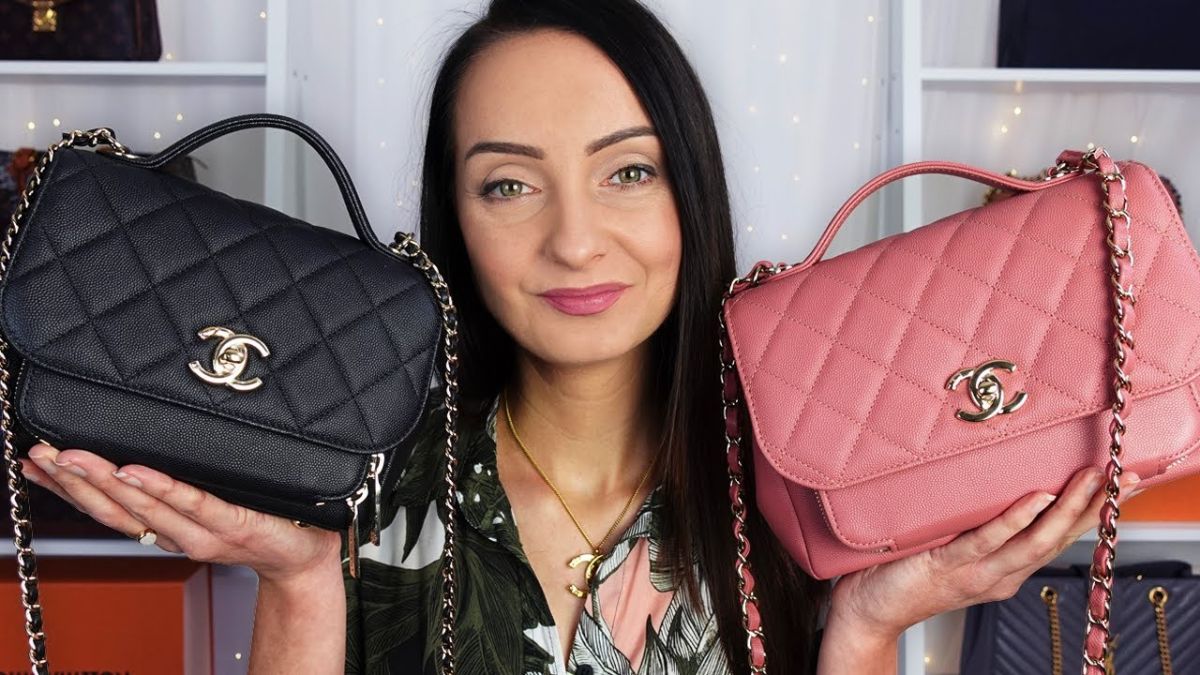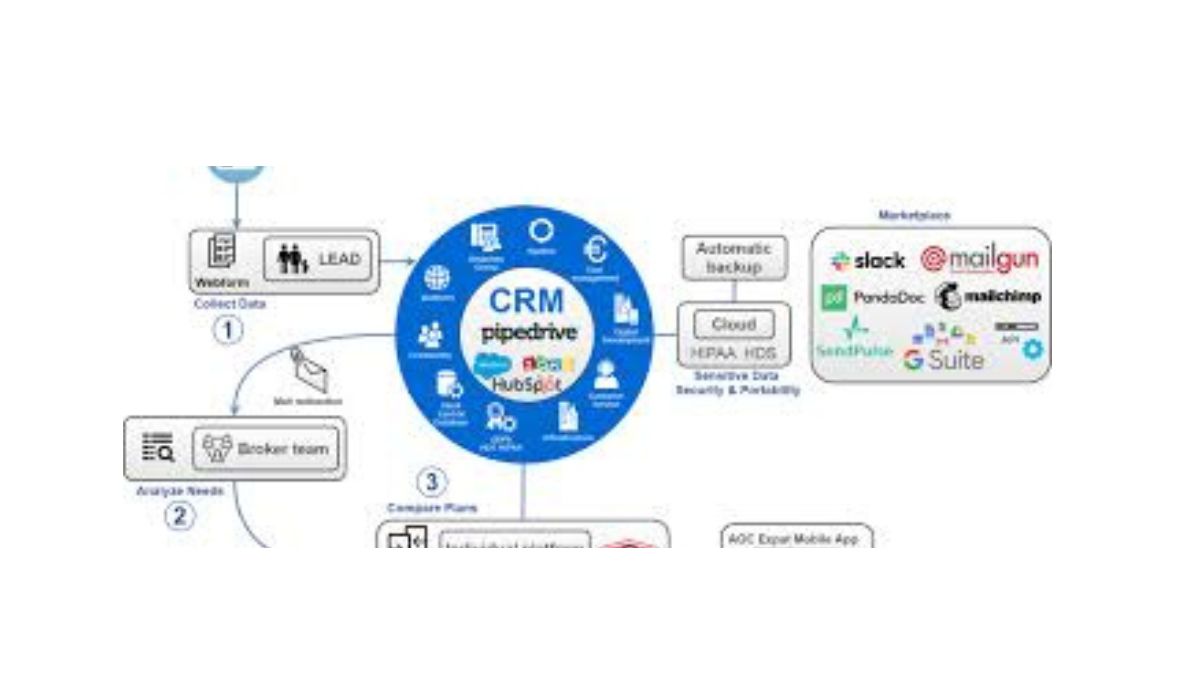BRANDS
Exploring the Business Affinity of Chanel: A Comprehensive Guide

Step into the world of timeless elegance and sophistication as we delve into the business affinity of Chanel, a brand synonymous with luxury, innovation, and unparalleled style. From its iconic couture creations to coveted accessories and fragrances, Chanel has etched its mark in the fashion industry as a trailblazer that continues to captivate hearts worldwide. Join us on a journey through the history, success factors, challenges, and future prospects of this esteemed brand that has redefined what it means to be at the pinnacle of luxury fashion.
The Business History of Chanel
Founded by the iconic Coco Chanel in 1909, Chanel has a rich history steeped in elegance and innovation. Coco revolutionized the fashion industry by introducing comfortable yet stylish designs for women during a time when corsets were the norm. Her vision for timeless and sophisticated pieces quickly garnered attention from high society clientele.
Over the years, Chanel expanded its offerings to include not just clothing but also accessories, fragrance, makeup, and skincare products. Despite facing setbacks during World War II, the brand persevered and continued to thrive under different creative directors while staying true to its founder’s vision of luxury and simplicity.
Today, Chanel stands as a symbol of class and sophistication with a global presence that solidifies its position as one of the most prestigious luxury brands in the world. The business history of Chanel serves as a testament to resilience, creativity, and an unwavering commitment to excellence.
Understanding the Target Market of Chanel
Understanding the target market of Chanel is crucial for grasping the essence of the brand’s allure. Chanel caters to a sophisticated and discerning audience who appreciate timeless elegance and luxury. The brand exudes a sense of exclusivity, attracting clientele who value high-quality craftsmanship and iconic design.
Chanel’s target demographic includes affluent individuals with a penchant for fashion-forward styles that stand the test of time. From classic tweed suits to statement handbags, Chanel appeals to those who seek refinement in every detail. The brand resonates with fashion enthusiasts who value tradition while embracing modern trends.
By understanding its target market, Chanel continues to captivate consumers worldwide with its unique blend of heritage and innovation. Through strategic marketing initiatives and curated experiences, Chanel maintains its position as a revered icon in the world of luxury fashion.
Key Factors Contributing to the Success of Chanel’s Business
Chanel’s success in the luxury fashion industry can be attributed to several key factors that set it apart from its competitors. One of the main contributors to Chanel’s business prosperity is its unwavering commitment to innovation and creativity. The brand continuously pushes boundaries with groundbreaking designs and avant-garde concepts, captivating a discerning clientele seeking unique and exclusive pieces.
Moreover, Chanel’s strong brand identity plays a pivotal role in its success. The iconic double-C logo, timeless designs by Coco Chanel herself, and the brand’s rich heritage all contribute to its allure and prestige. This distinctiveness resonates with consumers who value tradition while embracing modernity.
Another crucial factor in Chanel’s triumph is its dedication to quality craftsmanship and attention to detail. Each product is meticulously crafted using the finest materials, ensuring exceptional quality that withstands trends and time.
Furthermore, Chanel has successfully leveraged digital marketing strategies to reach a broader audience while maintaining an air of exclusivity. By seamlessly blending tradition with innovation, Chanel continues to captivate fashion enthusiasts worldwide.
The Signature Products and Services of Chanel
Chanel, the iconic luxury brand, is renowned for its signature products and services that exude elegance and sophistication. From the classic Chanel suit to the timeless Chanel No. 5 perfume, each item embodies the essence of chic Parisian style. The brand’s handbags, especially the coveted Chanel Flap Bag with its quilted design and interlocking CC logo, are a symbol of status and taste.
In addition to their exquisite fashion pieces, Chanel offers exclusive services such as personalized styling consultations at their boutiques worldwide. The attentive staff provides expert advice on selecting the perfect ensemble for any occasion, ensuring every customer feels like a VIP.
Moreover, Chanel’s commitment to craftsmanship and quality sets them apart in the competitive luxury market. Each product is meticulously crafted using premium materials by skilled artisans who uphold Coco Chanel’s legacy of attention to detail and innovation.
Chanel’s signature products and services reflect a dedication to timeless elegance and superior quality that continues to captivate fashion enthusiasts around the globe.
How Chanel Differentiates Itself from Competitors
Chanel sets itself apart from competitors through its timeless elegance and distinctive design aesthetic. The brand’s focus on classic sophistication and innovative creativity creates a unique allure that resonates with fashion-forward consumers worldwide.
One key differentiator for Chanel is its commitment to craftsmanship and quality. Each piece is meticulously crafted using the finest materials, ensuring durability and luxury that stands the test of time.
Moreover, Chanel’s iconic branding elements such as the interlocking CC logo and quilted patterns have become synonymous with luxury and style. These recognizable features help distinguish Chanel from other luxury brands in the competitive fashion industry.
Additionally, Chanel’s ability to seamlessly blend tradition with modernity appeals to a diverse range of customers, from loyal enthusiasts to new trendsetters seeking a touch of heritage in their wardrobe choices. This balance between heritage and innovation keeps Chanel ahead of its competitors in an ever-evolving market landscape.
Challenges Faced by Chanel in the Business Industry
Navigating the competitive landscape of the fashion industry, Chanel has encountered various challenges that have tested its resilience and strategic acumen. One significant challenge faced by Chanel is maintaining exclusivity while meeting the growing demand for its luxury products. Balancing supply and demand in a way that upholds the brand’s prestigious image requires meticulous planning and execution.
Additionally, counterfeit products continue to pose a threat to Chanel’s business integrity. The brand invests substantial resources in anti-counterfeiting measures to protect its intellectual property rights and preserve its reputation for authenticity.
Furthermore, adapting to rapidly changing consumer preferences and technological advancements presents ongoing challenges for Chanel. Staying relevant in an ever-evolving market means continuously innovating while staying true to the brand’s heritage and identity.
In an industry where trends come and go swiftly, sustaining long-term growth without compromising on quality or values remains a perpetual challenge for Chanel. By addressing these obstacles with agility and foresight, Chanel continues to uphold its position as a timeless icon in the world of luxury fashion.
Future Prospects and Growth Opportunities for Chanel
As Chanel continues to solidify its position as a leader in the luxury fashion industry, the brand is poised for further growth and expansion in the future. With the increasing demand for high-end products worldwide, Chanel has a significant opportunity to capitalize on emerging markets and new customer segments.
One key growth area for Chanel lies in digital innovation and e-commerce. By enhancing their online presence and investing in technology, Chanel can reach a wider audience and cater to the changing shopping habits of consumers.
Moreover, expanding into new product categories such as beauty, skincare, and homeware presents another avenue for growth. By leveraging their reputation for quality and luxury, Chanel can attract customers beyond just fashion enthusiasts.
Collaborations with influencers, celebrities, or other brands can also help Chanel tap into different demographics and create buzz around their products. By staying relevant and adapting to market trends, Chanel can ensure sustained success in the competitive landscape of luxury fashion.
Conclusion:
Chanel has solidified its position as a leading brand in the luxury fashion industry through a combination of rich history, iconic designs, and unwavering commitment to quality. By understanding their target market and continuously innovating while staying true to their heritage, Chanel has been able to stay ahead of competitors. Challenges have arisen along the way, but Chanel’s ability to adapt and evolve has allowed them to overcome obstacles.
Looking towards the future, Chanel is well-positioned for continued success by leveraging growth opportunities in emerging markets and expanding their digital presence. Their timeless appeal and dedication to craftsmanship will continue to resonate with consumers around the world.
In essence, Chanel’s business affinity lies not only in their exquisite products but also in the emotional connection they create with their customers. This blend of artistry, tradition, and innovation sets Chanel apart as a trailblazer in the luxury fashion landscape – a status that is sure to endure for generations to come.
BRANDS
Tips and Tricks for Achieving a Seamless Look with Wig Glue

Are you ready to take your wig game to the next level? Say goodbye to worries about your wig slipping or shifting throughout the day. Wig glue is here to save the day and give you that flawless, seamless look you’ve always dreamed of! In this blog post, we’ll dive into all the tips and tricks you need to know for achieving a perfect style with wig glue. Let’s get started!
Finding the Right Wig Glue for You
When it comes to finding the right wig glue for you, it’s essential to consider your specific needs and preferences. With a variety of options available on the market, it can be overwhelming to choose the perfect one.
Start by determining your desired hold strength – whether you prefer a light, medium, or strong hold. This will help narrow down your choices and ensure that your wig stays secure throughout the day.
Consider any sensitivities or allergies you may have to certain ingredients commonly found in wig glues. Opt for hypoallergenic formulas if you have sensitive skin or scalp issues.
Look for wig glues that are waterproof and sweat-resistant if you lead an active lifestyle or live in a humid climate. This will help prevent your wig from shifting or coming loose during physical activities.
Experiment with different brands and types of wig glue until you find one that meets all of your criteria in terms of hold, comfort, durability, and ease of removal.
Preparing Your Scalp and Wig for Glue Application
Before applying wig glue, ensure your scalp is clean and free of oils. Start by washing your hair with a gentle shampoo and thoroughly drying it. Next, use a cotton ball soaked in alcohol to cleanse your scalp along the hairline where the wig will sit. This step removes any residue that could affect the adhesive’s bond.
Trimming excess lace from the wig can help create a seamless look once applied. Align the wig with your natural hairline to determine where adjustments are needed. Use scissors to carefully trim away any lace that extends beyond this point.
Applying a scalp protector before adding glue can safeguard your skin from potential irritation. Simply apply a thin layer along your hairline and allow it to dry completely before proceeding with glue application.
Lightly dabbing powder or foundation along the edges of where the wig will be placed can help blend it seamlessly into your skin tone for a more natural appearance. By taking these preparatory steps, you’ll set yourself up for a successful and flawless application of wig glue!
Applying and Securing Your Wig with Glue
When it comes to applying and securing your wig with glue, precision and technique are key. Start by ensuring your scalp is clean and dry before beginning the application process. This will help the glue adhere better to your skin.
Carefully apply a thin layer of wig glue along your hairline, using a brush or applicator for accuracy. Allow the glue to dry slightly until it becomes tacky before placing the wig onto your head. Gently press down on the edges to secure the wig in place.
Take your time when positioning the wig, making sure it sits comfortably and aligns with your natural hairline. Once you’re satisfied with the placement, use a scarf or bandana to hold everything in place while the glue fully sets.
Avoid excessive movements or sweating during this time to prevent any shifting of the wig. With proper application and securing techniques, you can achieve a flawless look that lasts all day!
Maintaining Your Wig and Glue for Longevity
When it comes to maintaining your wig and glue for longevity, consistency is key. Regularly clean your wig to prevent buildup of oils, dirt, and residue that can weaken the adhesive bond. Gently brush or comb your wig to detangle any knots and keep it looking fresh.
Store your wig properly when not in use to avoid tangling or stretching. A wig stand or mannequin head works wonders for preserving the shape and style of your wig. Avoid exposing your wig to excessive heat from styling tools as this can damage both the fibers and the glue.
Check for any signs of wear or tear on your wig cap or adhesive. If you notice any issues, address them promptly to prevent further damage. By taking these simple steps, you can ensure that your wig stays secure and looking fabulous for longer periods of time.
Removing Your Wig and Glue Properly
When it comes time to remove your wig and glue, taking the proper steps is crucial to keeping both your natural hair and wig in good condition. Begin by gently lifting the edges of the wig near your scalp using a specialized adhesive remover or alcohol-based solution.
Slowly work your way around the perimeter of the wig, being careful not to tug or pull too hard on the lace or strands. As you loosen the adhesive, you can gradually lift off the wig from front to back.
After removing the wig, cleanse any remaining residue on your scalp with a gentle cleanser and warm water. It’s important to be patient during this process as rushing could lead to damage.
Allow both your natural hair and wig cap time to air dry completely before reapplying any products or wearing another wig for best results. By following these steps carefully, you can ensure that both your skin and wigs stay healthy!
Alternative Methods for Securing Wigs
When it comes to securing your wig, there are alternative methods you can explore beyond traditional wig glue. One option is using wig tape, which provides a strong hold without the mess of liquid adhesives. Simply apply the tape along the perimeter of your hairline for a secure fit.
Another method is using wig clips or combs attached to your wig cap. These small but mighty attachments can be sewn into your natural hair for added security. They are great for those who prefer a quick and easy way to keep their wigs in place.
For a temporary fix, consider using double-sided fashion tape. This versatile adhesive can help keep certain parts of your wig in place throughout the day without any long-term commitment.
Experimenting with different securing methods can help you find what works best for your comfort and style preferences when wearing wigs.
Conclusion:
Incorporating wig glue into your routine can elevate your wig-wearing experience to a whole new level. By following the tips and tricks outlined in this guide, you can achieve a seamless look that lasts all day long. From finding the right wig glue for your needs to properly preparing, applying, and maintaining it, you have all the tools necessary to rock any style with confidence.
Remember, practice makes perfect when it comes to using wig glue. Don’t be afraid to experiment and find what works best for you. With patience and persistence, you’ll soon master the art of securing your wig flawlessly every time. So go ahead, embrace the versatility and convenience of wig glue, and step out looking fabulous each day!
BRANDS
Sniff, Solve, Spray: The Fascinating Appeal of Riddle Perfume

Welcome to the intriguing world of Riddle Perfume, where mystery and fragrance intertwine to create an unforgettable olfactory experience. Imagine a scent that not only captivates your senses but also unravels hidden memories and emotions with each spray. Enter the realm of Riddle Perfume, where every bottle holds a secret waiting to be discovered. Join us on this aromatic journey as we delve into the fascinating appeal of Riddle Perfume and uncover the magic behind its enchanting scents.
The Science Behind Scent and Memory
Our sense of smell is closely linked to memory and emotion. When we inhale a fragrance, it travels through our olfactory system straight to the brain’s limbic system, where memories and emotions are processed. This direct connection explains why certain scents can evoke powerful recollections from the past.
Research has shown that smells have a unique ability to trigger vivid memories more effectively than other senses. The hippocampus, a part of the brain responsible for memory formation, is strongly influenced by scents. This phenomenon is known as the Proustian memory effect, named after French writer Marcel Proust who famously wrote about how a madeleine cake dipped in tea brought back childhood memories.
Understanding the science behind scent and memory can help us appreciate how fragrances like Riddle Perfume can transport us to different times and places with just one sniff. The next time you catch a whiff of your favorite perfume or cologne, take a moment to savor the memories it awakens within you.
The Creation of Riddle Perfume
Riddle Perfume is a creation born out of passion, artistry, and innovation. The process of crafting these unique scents begins with meticulous research and sourcing of the finest ingredients from around the world. Expert perfumers then skillfully blend these elements together to create harmonious fragrances that evoke a sense of mystery and intrigue.
Each Riddle perfume tells a story through its carefully curated notes, taking the wearer on a sensory journey unlike any other. From floral accords to woody undertones, every scent is designed to captivate the senses and leave a lasting impression.
The dedication to quality and craftsmanship can be seen in every aspect of Riddle Perfume’s production, from the design of the bottles to the packaging itself. Attention to detail is paramount, ensuring that each bottle holds not just a fragrance but an experience waiting to be discovered.
With an emphasis on creativity and individuality, Riddle Perfume pushes boundaries in the world of fragrance, offering something truly distinctive for those seeking more than just a signature scent.
Unique Features and Benefits of Riddle Perfume
Riddle Perfume offers a unique experience unlike any other in the fragrance industry. Each scent is crafted with precision and care, using only the finest ingredients to captivate your senses.
One of the standout features of Riddle Perfume is its long-lasting formula that keeps you smelling fresh all day long without being overpowering. The scents are designed to evolve on your skin, creating a personalized aroma that is truly one-of-a-kind.
Not only does Riddle Perfume offer a wide range of captivating scents, but it also comes in beautifully designed bottles that double as elegant decor pieces for your vanity or dresser. The attention to detail in both the fragrance and packaging sets Riddle Perfumes apart from other brands.
In addition to their exquisite scents, Riddle Perfume products are cruelty-free and ethically sourced, making them a conscious choice for those who value sustainability and animal welfare. Experience luxury with a purpose when you indulge in Riddle Perfume’s collection.
Popular Riddle Perfumes and Their Meanings
Unveiling the allure of Riddle Perfume goes beyond just its captivating scents – each perfume carries a deeper meaning, adding an intriguing layer to your olfactory experience. Take “Enigma,” for example, a blend of mysterious notes that evoke a sense of enigmatic charm and sophistication. This fragrance is perfect for those who enjoy keeping others guessing.
“Whisper” whispers soft floral and musky tones that embody subtlety and grace. It’s ideal for those moments when you want to leave a delicate yet lasting impression. For the adventurous souls, there’s “Quest,” a vibrant mix of citrus and woody scents that inspire wanderlust and curiosity.
“Dreamscape” transports you to ethereal realms with its dreamy blend of lavender and vanilla, inviting you to lose yourself in fantasies. Each popular Riddle Perfume tells a unique story through scent, allowing you to express different facets of your personality effortlessly.
How Riddle Perfume is Revolutionizing the Fragrance Industry
Riddle Perfume is making waves in the fragrance industry with its innovative approach to scent creation. By combining art, science, and storytelling, Riddle has redefined what it means to wear a perfume. Instead of just smelling good, their perfumes evoke emotions and memories through carefully crafted blends.
What sets Riddle apart is their focus on transparency and sustainability. Each bottle not only tells a story but also reflects their commitment to using natural ingredients and eco-friendly packaging. This dedication to ethical practices resonates with consumers seeking more than just a pleasant fragrance.
Moreover, Riddle’s personalized approach allows customers to create scents that truly reflect their individuality. By offering customization options, they empower individuals to express themselves through unique fragrances that can’t be found elsewhere.
In an industry saturated with mass-produced perfumes, Riddle stands out as a beacon of creativity and authenticity. Their dedication to quality craftsmanship and meaningful storytelling is transforming how we experience scent on a whole new level – one sniff at a time.
Conclusion:
Riddle Perfume has truly revolutionized the fragrance industry with its unique concept and approach to scent creation. By combining the art of perfumery with the science of memory, Riddle Perfume offers a one-of-a-kind olfactory experience that resonates deeply with its users.
The ability of scents to evoke powerful emotions and memories is well-documented, and Riddle Perfume harnesses this power to create fragrances that are not just pleasant to smell but also meaningful on a personal level. Each perfume tells a story, triggers specific memories, and connects us to our past in a way that is both nostalgic and comforting.
With an emphasis on sustainability, transparency, and quality ingredients, Riddle Perfume sets itself apart as a brand that cares about both its customers and the planet. The meticulous attention to detail in every aspect of their product reflects their commitment to creating an exceptional sensory experience for all who encounter their fragrances.
Riddle Perfume is more than just a perfume; it’s a journey through memory lanes woven into each bottle. Experience the transformative power of scents with Riddle Perfume – where every sniff leads you closer to unlocking the mysteries hidden within your own mind.
-

 FOOD9 months ago
FOOD9 months agoSure! Here are seven engaging blog post titles related to the concept of a “retail food product
-

 GENERAL8 months ago
GENERAL8 months agoTroubleshooting Common VRChat Login Issues: Tips and Tricks
-

 INSURANCE7 months ago
INSURANCE7 months agoNavigating the Future of Insurance with Technical Reserves in Flow Insurance
-

 TECH8 months ago
TECH8 months agoDiscover Reliable Abithelp Contact Solutions with JustAnswer
-

 GENERAL9 months ago
GENERAL9 months agoExploring the World of Erothots: What You Need to Know
-

 TECH3 months ago
TECH3 months agoWhat You Need to Know About the 346 Area Code
-

 Codes3 months ago
Codes3 months agoWhat You Need to Know About the 904 Area Code
-

 FOOD9 months ago
FOOD9 months agoSure! Here are seven engaging blog post titles related to a “502 food blog
